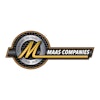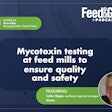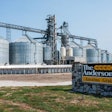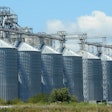
On Sept. 1, the United Kingdom (UK) implemented a 10% ethanol blend standard (E10) nationwide.
Previously, the UK government did not allow blending above E5. Moving to an E10 policy aligns the UK with other European countries that have successful E10 blending, including Belgium, Finland, France and Sweden.
The new standard builds on the UK’s goal to develop a net-zero transport sector by 2050. According to the UK’s Department of Transport, the use of E10 has the potential to cut carbon dioxide emissions from the transportation sector by 750,000 metric tons each year, equal to removing 350,000 cars from the road. The Department also stated there are plans to introduce E10 in Northern Ireland in 2022.
“USGC is pleased to see the successful nationwide rollout of the UK’s E10 policy,” Isabelle Ausdal, U.S. Grains Council (USGC) manager of ethanol trade policy and economics, says. “Countries like the U.S. have experienced a significant reduction in greenhouse gas (GHG) emissions from the use of E10. The UK’s move to E10 is a great example of successful implementation of ethanol blending policies to accelerate GHG reduction targets.”
As a result of the E10 rollout, UK ethanol consumption is expected to rise to 256 million gallons by 2022. Deployment of E10 is supported by the proposed Renewable Transport Fuel Obligation (RTFO). The RTFO will increase the total share of renewable fuels in road transport by five percent and support E10 uptake to deliver increased carbon reductions.
“The expansion of an existing policy to E10 is another step toward a decarbonized transportation sector and a signal to the world that ethanol is an immediate environmental solution. Stronger ethanol blending policies ensure that more biofuels are blended into the overall fuel supply, further reducing harmful emissions in the long term,” Ausdal says.
While E10 is now the national standard, the UK’s proposed regulations still allow a blend as low as 5.5 percent to count as E10. The decision allows fuel suppliers flexibility to manage supply and demand issues while ensuring new fuel labeling is consistent. With more than 95 percent of vehicles on the road compatible with E10, the ethanol industry advocates for the UK government to raise this minimum requirement. The UK market is currently blending at 4.8 percent, and early estimates indicate blend rates may reach seven to eight percent following the introduction of the RTFO on Jan. 1, 2022.
Read more about USGC's effortshere.





















